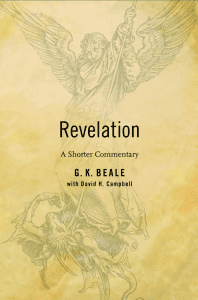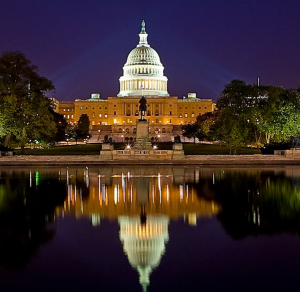The Book of Revelation is a theopolitical text, a text assaulting the idolatries of the Roman Empire. This approach raises a number of vistas for reading the text.
 Michael Gorman, Reading Revelation Responsibly: Uncivil Worship and Witness: Following the Lamb into the New Creation discusses this theopolitical reading of Revelation. It’s about empire.
Michael Gorman, Reading Revelation Responsibly: Uncivil Worship and Witness: Following the Lamb into the New Creation discusses this theopolitical reading of Revelation. It’s about empire.
This is very popular today. In fact, many are suggesting anti-empire readings are motivated by one’s politics and not by solid historical readings.
One could argue that such readings not only appeared during the Bush era but are now on their decline because Bush is gone. In other words, some are arguing that anti-empire readings are simply anti-American or anti-Bush or anti-Republican or anti-capitalist readings. Which leaves us with the big question.
In fact, two big ones: the first one is this: Is the USA an empire? The second one…
What is an Empire? His definition is important and vital:
An entity that has come to widespread (global or nearly global) dominance
through deliberate expansion
by means of the extreme exercise of some form(s) of power
resulting in the creation of colony-like clients of the entity and
of enemies who perceive the entity as oppressive.
Gorman wisely backs off a bit to say this:
It is more important for us to see Revelation as a critique of secular power whatever and however it expresses itself oppressively, and
especially as a critique of such power that is deemed sacred and granted devotion and allegiance.
So, Gorman sees the danger in sacralization of power and State. The danger is civil religion, which has three characteristics:
1. Sacralizing the State.
2. Demand of solemn devotion.
3. Reinterpretation of the culture’s dominant religious traditions — colonizing religion into culture and State.
Back to our question: Is the USA an Empire according to these two sets of ideas — the meaning of empire and the nature of civil religion?
Gorman lists the following elements of American civil religion:
1. American exceptionalism: chosen and Manifest Destiny and even a messianism.
2. Extreme patriotism and even nationalism — that USA is superior to all other nations.
3. Human liberty and rights as America’s mission and what he calls “secularized Calvinism” (freedom abounds to the degree one is generous and works hard).
4. Militarism and sacred violence: use of violence that displaces the use of peaceful means.











